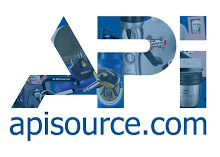Four Tips for Bringing in Business in 2012
by Doug and Polly White
All kidding aside, things have been tough for businesses, especially small businesses during the past several years. Funding is tight―okay, really tight. Government at all levels seems to be staying up at night thinking of new ways to make “doing business” more difficult, and consumers are more reluctant than ever to spend. This is the toughest economic environment that most of us have seen in our working lifetimes.
Adventure is just bad planning – Have you had enough of the rollercoaster, fly-by-the-seat-of-your-pants method? Try planning instead―there is a simple three-step process. First, you have to set written goals. What do you want to achieve in 2012? It seems like such a simple question, but many business people go year after year without ever deciding exactly what they want to achieve. Amazingly, these business owners are often surprised when results are disappointing. What are your revenue goals? What profit percentages do you want and need to make? Do you want to expand operations or launch a new product line? Commit your specific goals to writing.
Second, develop a plan to achieve your business objectives. What do you need to do differently in 2012 to meet these goals? Map out a step-by-step process that will result in achieving the goals you set. The plan should consist of a clear set of action items, completion dates and the name of the one person responsible for each action step. When more than one person is responsible, no one is accountable. Resist the temptation to assign more than one person to any single action step.
Finally, execute your plan and review progress periodically. These reviews must be scheduled and they must be a priority. Executing your plan and holding people accountable for results is very important, but it may not be considered urgent. Without discipline, the urgent will always overtake the important. Don’t fall into this trap.
Start with good people – It has become a cliché to say that our people are our greatest asset. While perhaps cliché, it is also true. You need good people with great skills to serve your customers and/or make your products. One hurdle we see small business people struggle with is acting on difficult employee issues. These can include underperformance, poor attitudes and mismatched skills. It is especially difficult when a loyal employee can no longer perform well because the job has outgrown his or her abilities. We have seen entrepreneurs reluctant to remove or layer a long-term employee, or worse, a family member or friend who is struggling to perform in a job to which they are not well suited. The situation is bad for all concerned. The employer, the employee and customers suffer.
In 2012, first review your goals and action steps. Next, imagine the roles, skills sets, behaviors and cognitive capabilities you will need to achieve your goals successfully. Finally, take a hard look at the individuals on your team. Be brutally honest when you consider whether they have or could reasonably acquire the skills and other attributes necessary to help you complete your plan. If not, you will need to make some difficult decisions.
Don’t delay. We have never heard anyone say, “I think I fired Mary too soon. I should have given her several more chances.” On the other hand, we have often heard small business people lament, “I wasted so much time giving Mary chance after chance. Why did I wait so long to make that change?” You need good people to execute your plan. You must help your folks develop the skills they need or get folks that already have them.
Don’t fall into the insanity trap – You have probably heard the quote that the definition of insanity is doing the same thing over and over again, expecting a different result. The truth is that poor processes breed poor results and the results won’t change until the processes are improved. If you want to do things faster, at a lower cost, and with better quality in 2012 you will need to develop better processes.



No comments:
Post a Comment